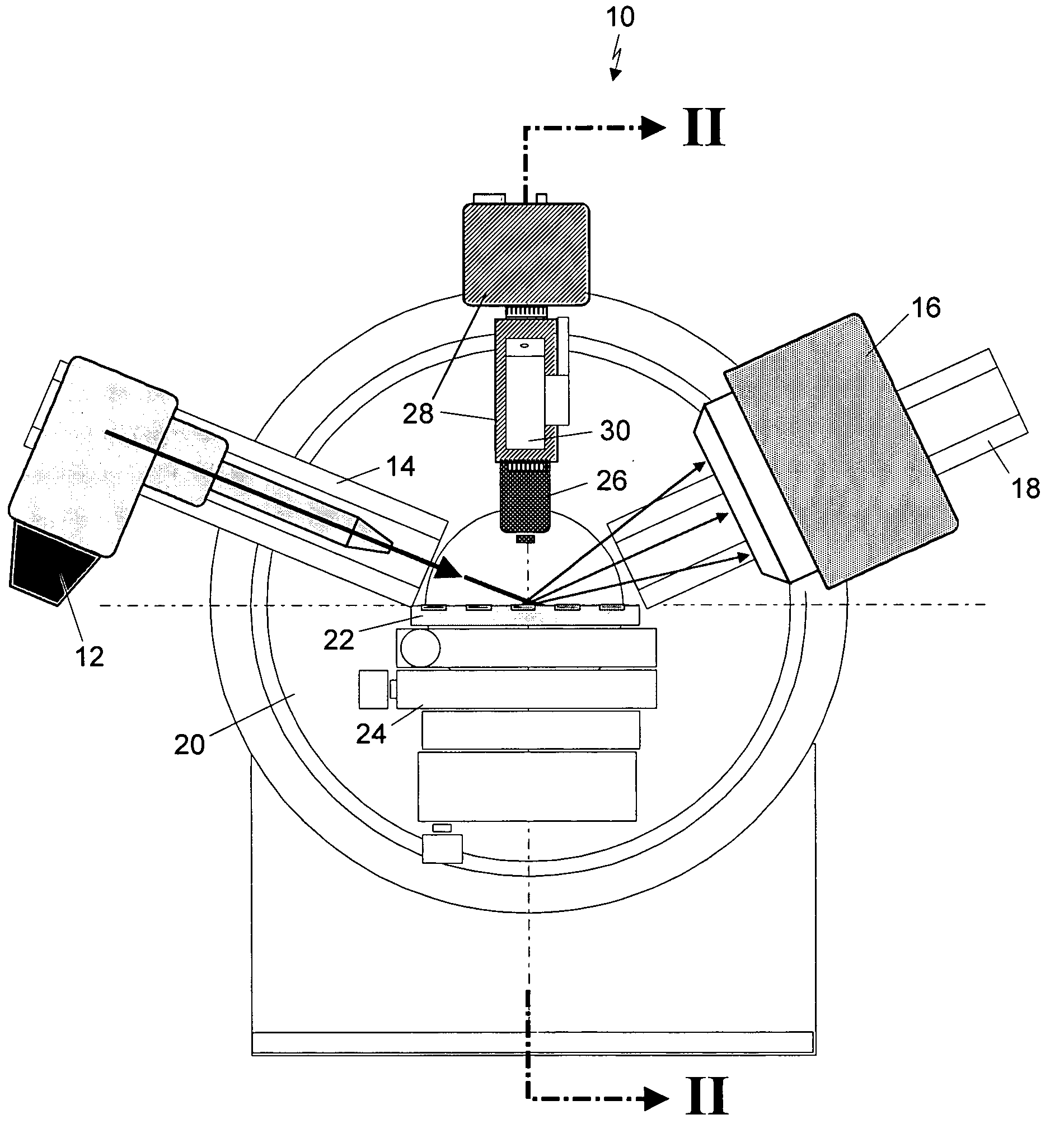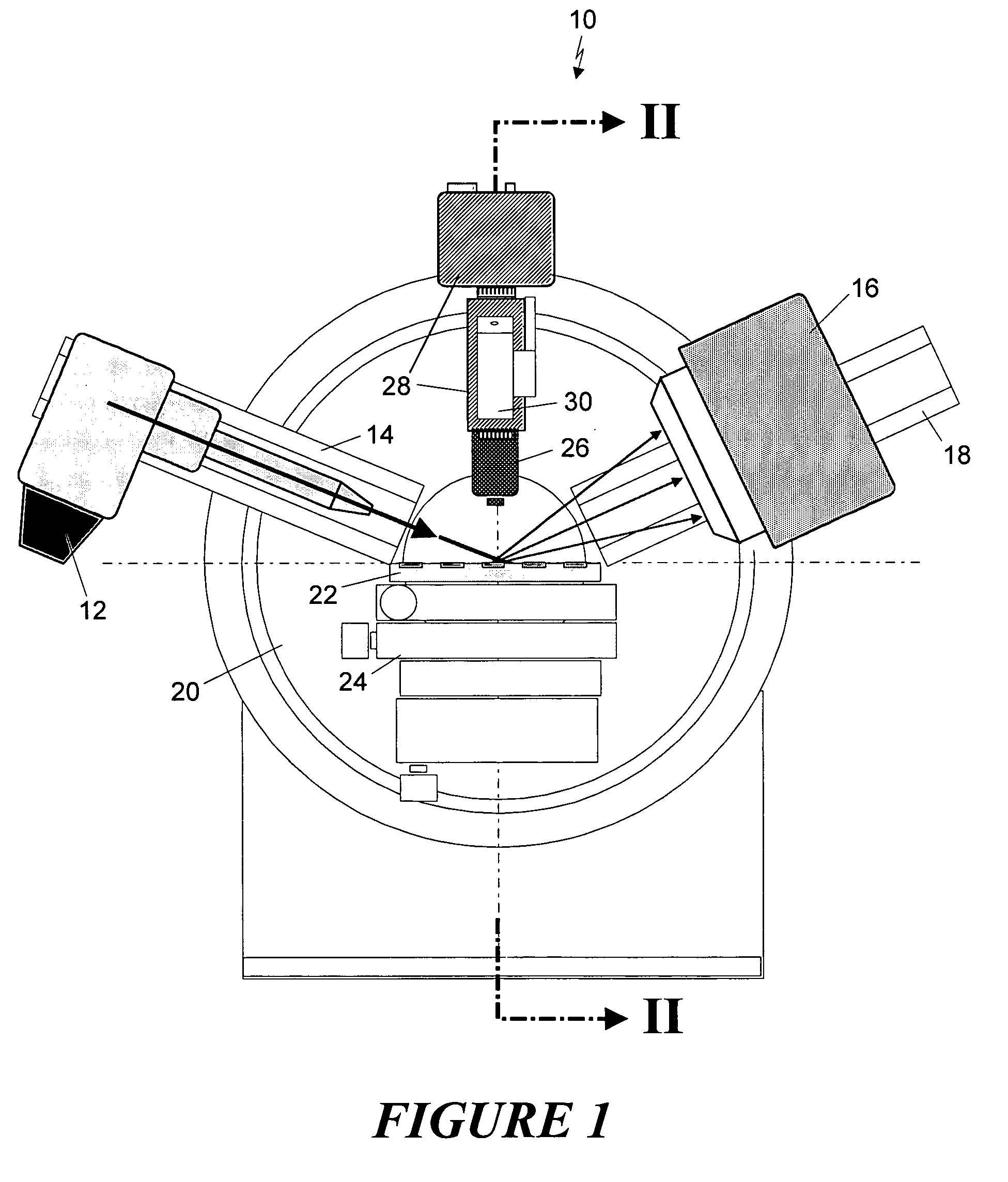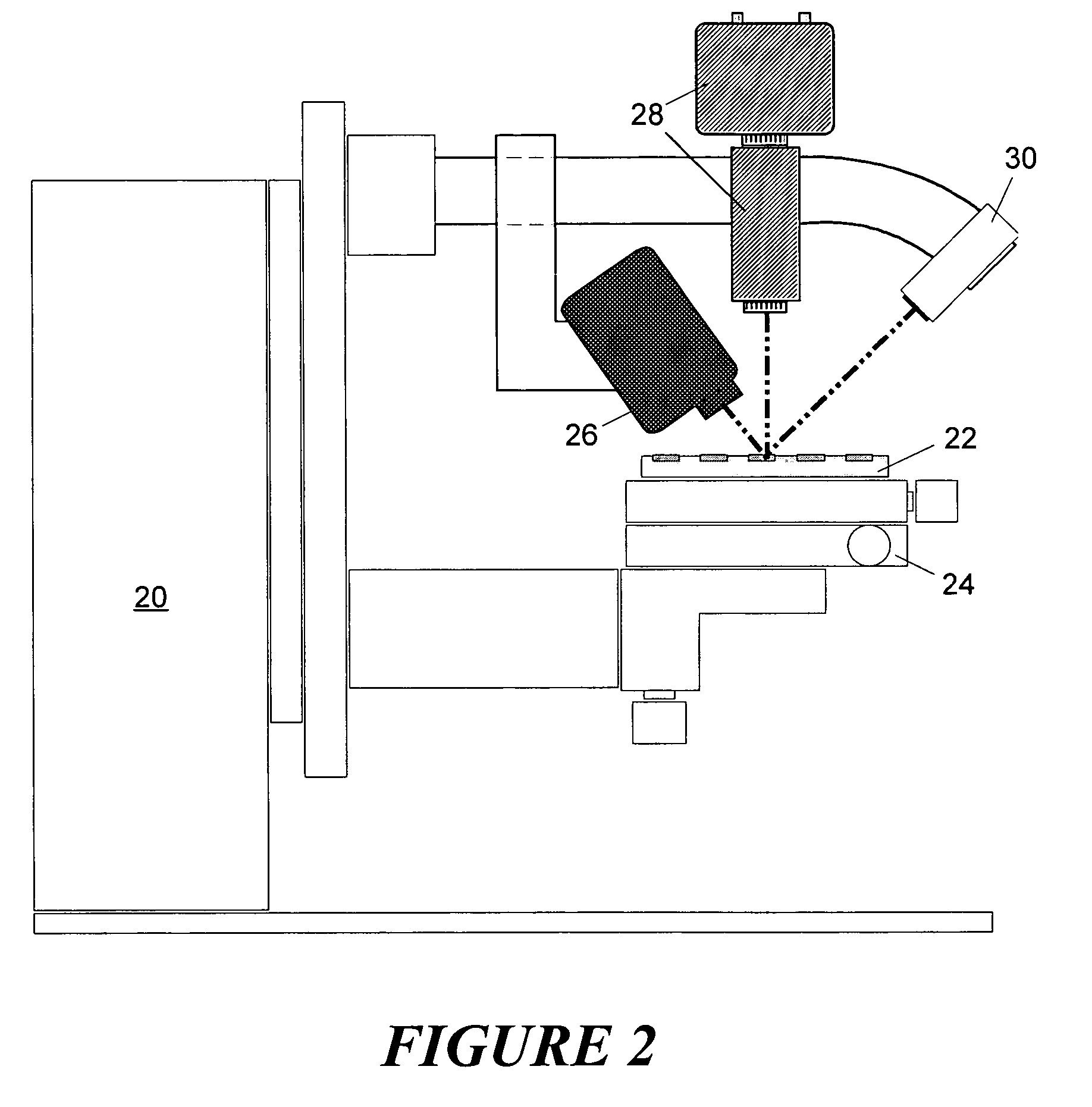Combinatorial screening system with X-ray diffraction and Raman spectroscopy
- Summary
- Abstract
- Description
- Claims
- Application Information
AI Technical Summary
Benefits of technology
Problems solved by technology
Method used
Image
Examples
Embodiment Construction
[0014]FIG. 1 is an illustration of the front view of a system consisting of an analysis system 10 that includes an X-ray diffractometer, Raman spectrometer and video microscope. In the system, the x-ray source and optics 12 are mounted on a dovetail track, referred to herein as θ1 track 14. A two-dimensional X-ray detector 16 is mounted on another dovetail track, referred to herein as θ2 track 18. θ1 track 14 is mounted to the inner circle of goniometer 20, while the θ2 track 18 is mounted on the outer circle of the goniometer. The sample library 22 is placed on an XYZ translation stage 24. The Raman probe 26, the video microscope 28 and the laser 30 are mounted on the stationary part of the goniometer 20.
[0015] The system shown in FIG. 1 is capable of collecting analytical data from a sample under test using several different techniques. The Raman probe 26 is located above the sample, and uses a laser source that delivers photonic energy to the sample, and a collection device that...
PUM
 Login to View More
Login to View More Abstract
Description
Claims
Application Information
 Login to View More
Login to View More - R&D
- Intellectual Property
- Life Sciences
- Materials
- Tech Scout
- Unparalleled Data Quality
- Higher Quality Content
- 60% Fewer Hallucinations
Browse by: Latest US Patents, China's latest patents, Technical Efficacy Thesaurus, Application Domain, Technology Topic, Popular Technical Reports.
© 2025 PatSnap. All rights reserved.Legal|Privacy policy|Modern Slavery Act Transparency Statement|Sitemap|About US| Contact US: help@patsnap.com



